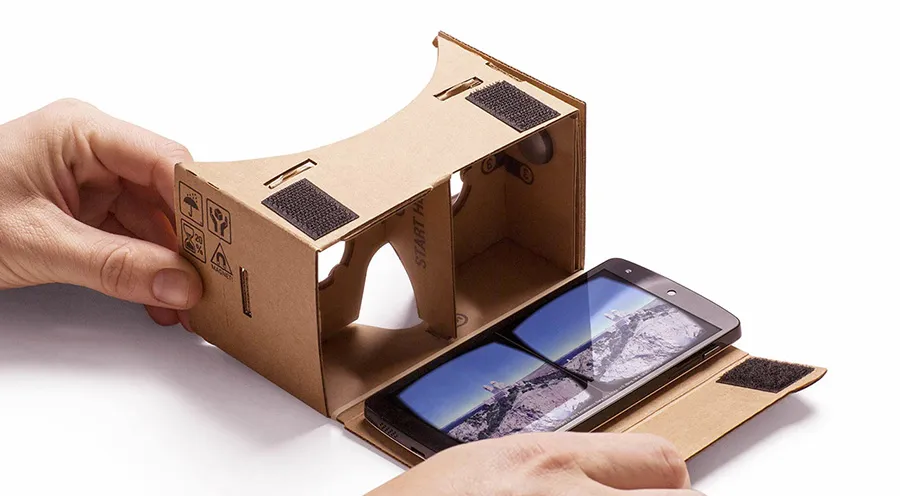Google’s next big frontier for Android is looking more and more like it’s going to be centered around VR.
The tech giant recently upgraded Google Cardboard so you can more easily find compatible apps and watch any Youtube video in a virtual cinema, a change which happened right before the New York Times shipped 1 million Cardboards to subscribers. Google is spreading Cardboard to schools around the United States too, providing virtual field trips for kids. It is also developing the Jump service, a team-up with camera companies so that 360 footage captured for VR doesn’t feature jarring video stitching where different cameras overlap. Google is also building the depth-sensing Project Tango. While a phone is in the works, developers can already buy a tablet.
Now comes word from The Information (subscription required) that Google is attempting to seek chip development partners to build technologies for future Android phones. The Information frames the move as an attempt by Google to emulate Apple, which increases performance in new iPhones by developing its own chips and picking best-in-class components to integrate into devices. If Google develops custom cameras, processor chips or movement sensors for Android phones all those technologies could be used for better VR experiences. This would allow future Google-developed phones to build on the basics of Cardboard and provide a more advanced experience similar to Gear VR.
Another possibility is that Google could begin to exert more control over Android development partners, requiring higher quality components. The same way Oculus is slapping “Oculus Ready” stickers onto PCs to guarantee they work with the Rift, Google could also guarantee devices work well with VR apps that are a step beyond Google Cardboard.
Samsung and Oculus have partnered on the Gear VR for a superior VR experience and the team-up might represent a threat to Google’s control of the Android ecosystem. If the redesigned Gear VR, which should go on sale any day now, sees strong adoption we might end up hearing more from Google sooner rather than later.



























